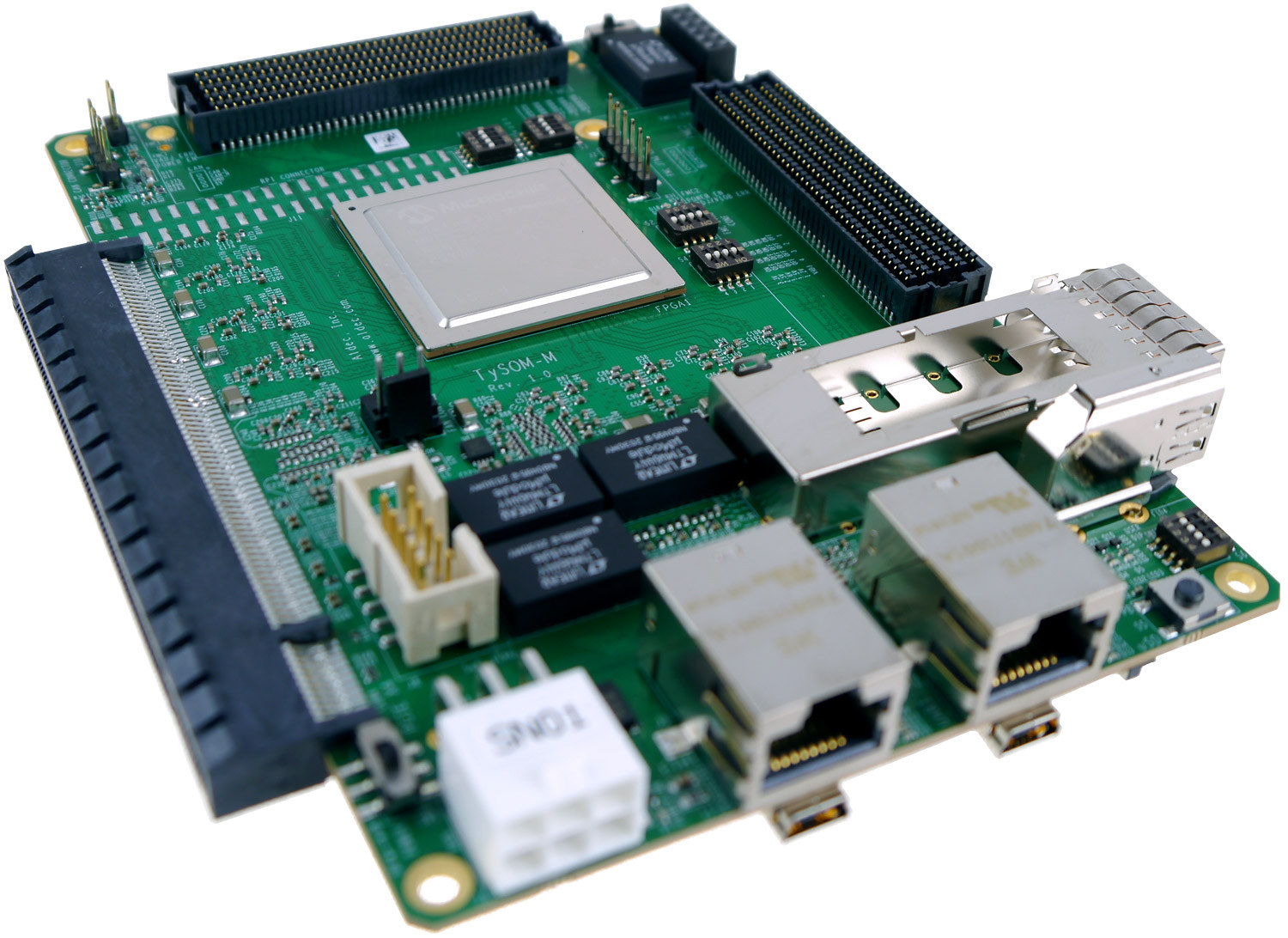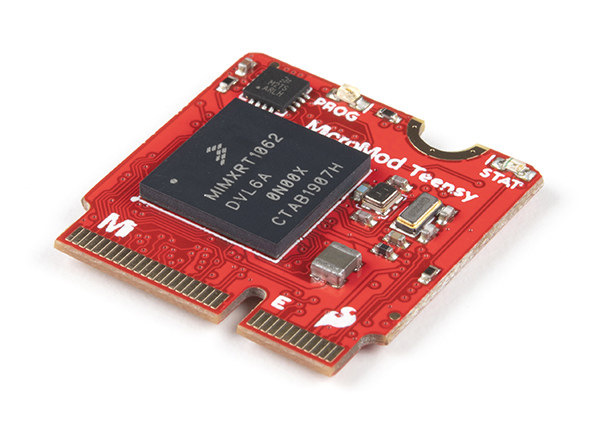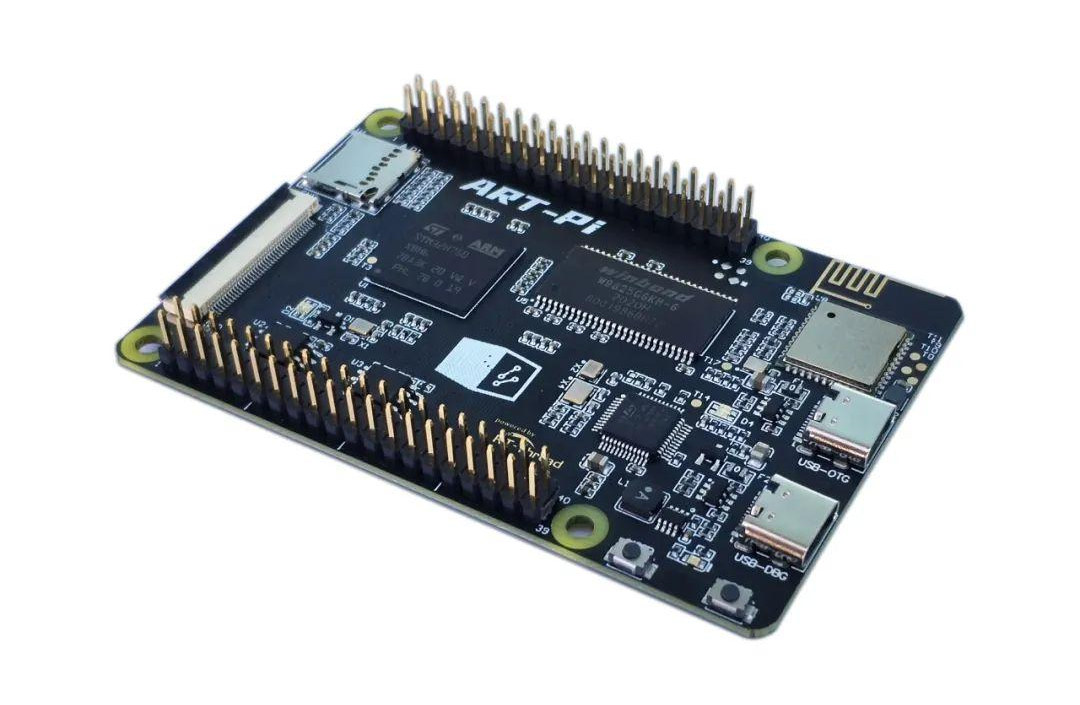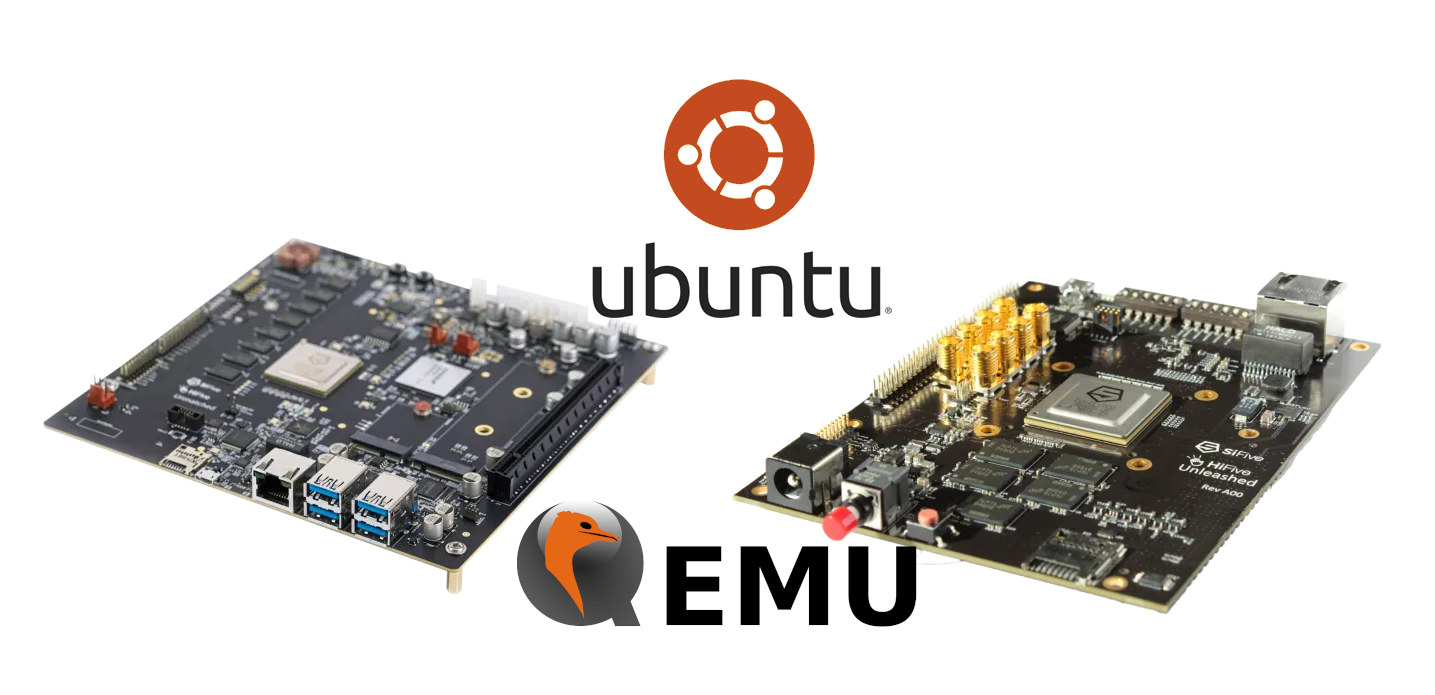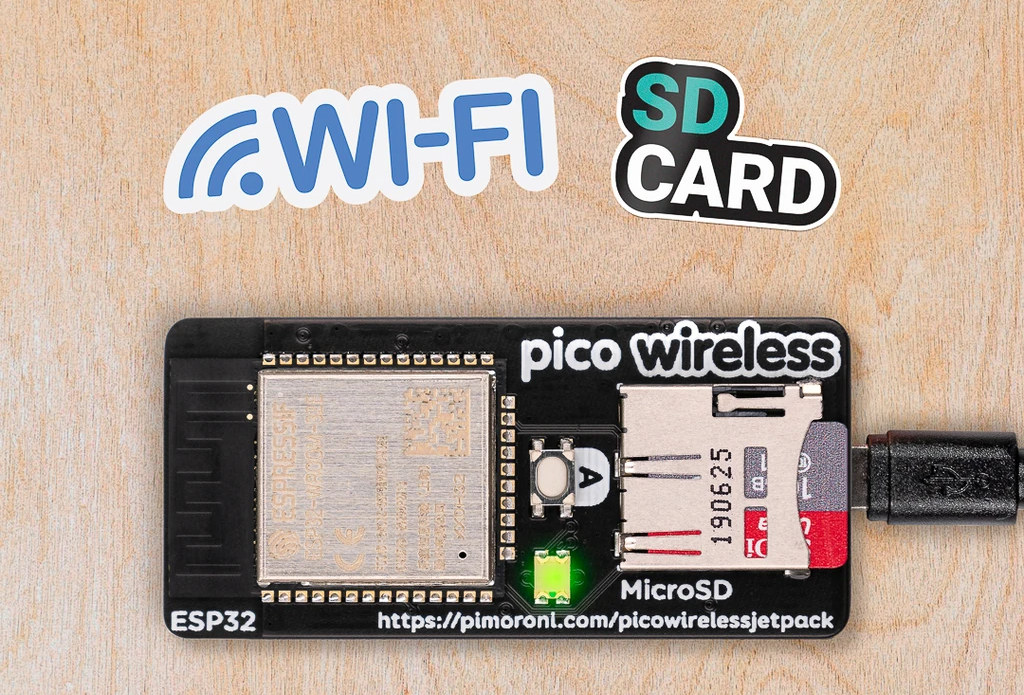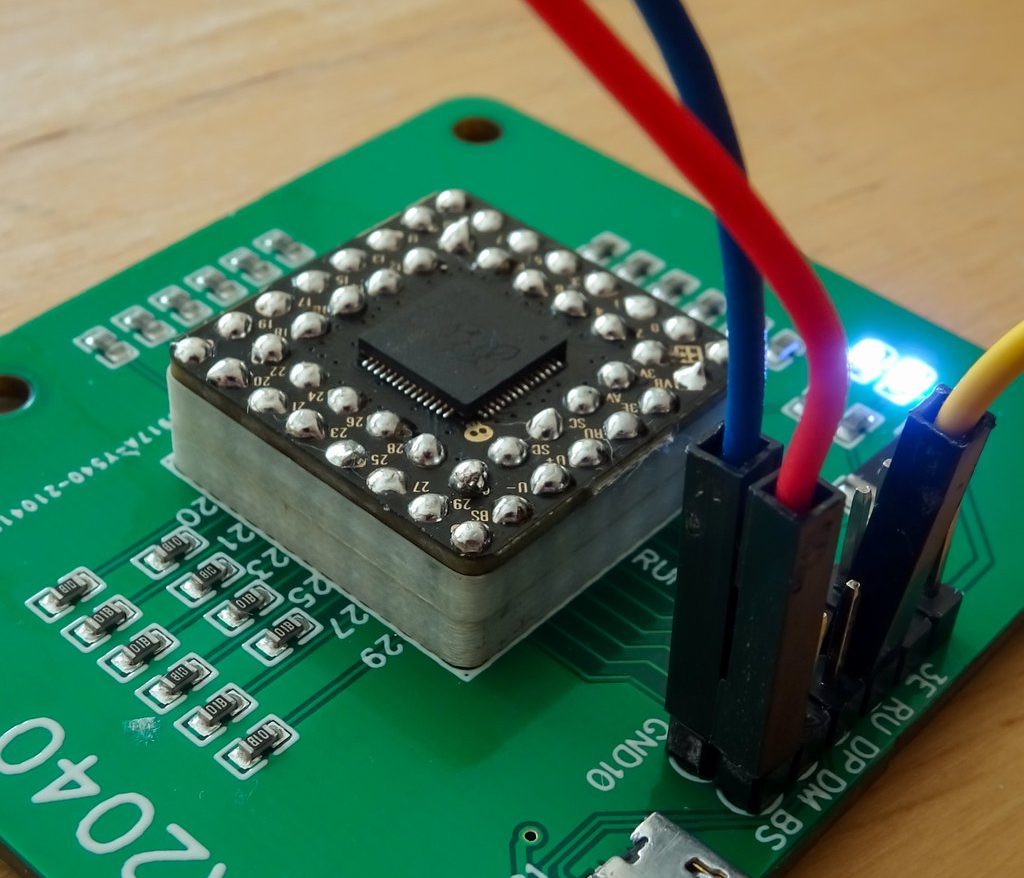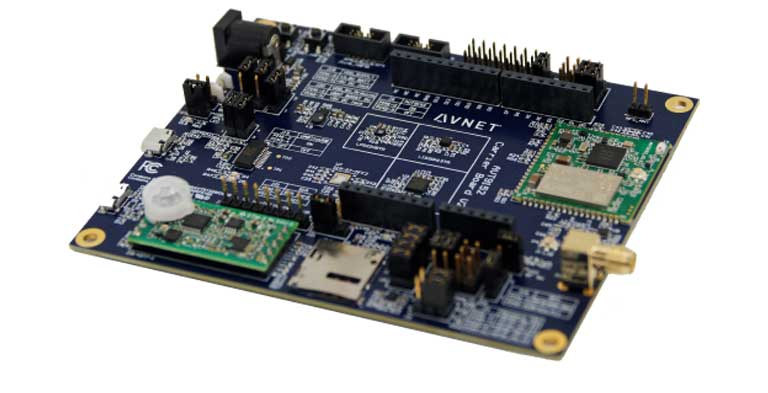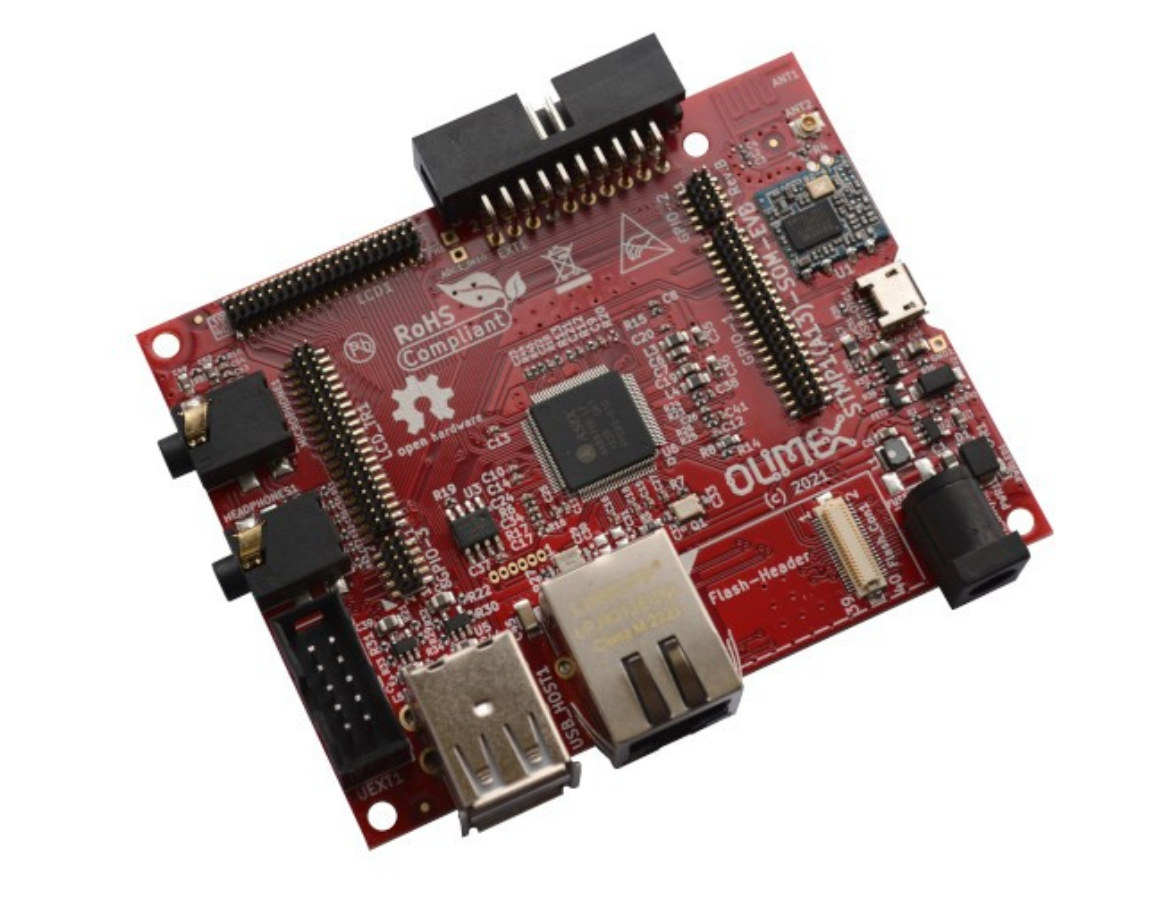Microchip/MicroSemi first introduced PolarFire RISC-V FPGA SoC at the end of 2018, with the chip being like the RISC-V equivalent of Xilinx Zynq Ultrascale+ Arm & FPGA MPSoC. The following year, ARIES Embedded unveiled the ARIES M100PF system-on-module and evaluation board, before Microchip launched PolarFire SoC Icicle 64-bit RISC-V and FPGA development board, followed by the more compact PolarBerry SBC in 2020. There’s now at least a fourth platform based on PolarFire SoC with Aldec TySOM-M-MPFS250 embedded development board. Aldec TySOM-M-MPFS250 specifications: SoC – Microchip PolarFire MPFS250T-FCG1152 SoC with 4x SiFive U54 RV64GC application cores (similar to Cortex-A35 performance), 1x SiFive E51 RV64IMAC monitor core, FPGA fabric with 254K logic cells, 17.6 Mb RAM System Memory 2GB (16Gbit) 32-bit DDR4 for the FPGA 2GB (16Gbit) 36-bit RAM with ECC for the RISC-V cores (aka MSS = Microprocessor Subsystem) Storage – MicroSD card socket, eMMC flash, SPI flash, 64 Kbit […]
MicroMod Teensy brings Teensy 4.0 board to M.2 form factor
Teensy 4.0, a low-cost board based on NXP i.MX RT1062 Arm Cortex-M7 crossover processor, is now getting a little brother with MicroMod Teensy following the same M.2 form factor as other Sparkfun MicroMod boards. Born from a collaboration between PJRC and Sparkfun, MicroMod Teensy has essentially the specs of Teensy 4.0 but with larger flash memory, and the board will be fully supported by the Teensyduino add-on to the Arduino IDE as noted by Paul Stoffregen on Twitter. MicroMod Teensy specifications: SoC – NXP i.MX RT1062 Arm Cortex-M7 processor at 600 MHz with 1024KB RAM (512KB is tightly coupled), Storage – 16MB serial flash (instead of 2MB on Teensy 4.0) M.2 MicroMod connector with USB Device up to 480Mbit/sec: Capable of enumerating as a USB keyboard, mouse, joystick, MIDI, audio, and more USB Host up to 480Mbit/sec: Capable of interfacing to USB flash drives, mice, keyboards, and more 7x Serial […]
Art-Pi STM32H750 Cortex-M7 board supports RT-Thread, mainline Linux
I like to browse Linux changelog to learning about new features in the kernel, but also new hardware that made it into mainline Linux, even if only preliminary or partial. And in the just-released Linux 5.13, one board that caught my eye was Art-Pi, powered by an STMicro STM32H750 Cortex-M7 microcontroller without MMU (memory management unit) that was initially designed for RT-Thread real-time operating system. Art-Pi specifications: MCU – STM32H750XBH6 Value Line Cortex-M7 microcontroller @ 400 MHz, with 128KB flash, 16KB D/I cache, 864 SRAM, 64KB+128KB TCM with ECC correction System Memory – 32MB SDRAM Storage – MicroSD card slot, 16 MB SPI flash, 8MB QSPI flash Display – FPC connector for RGB888 displays Connectivity – SDIO WiFi 4 and UART Bluetooth via Ampak AP6212 module USB – 1x USB OTG Type-C port Debugging – On-board ST-LINK/V2.1 via USB-C DBG port Expansion – 2x 40-pin P1 & P2 headers with […]
Ubuntu 20.04/21.04 64-bit RISC-V released for QEMU, HiFive boards
Let’s a lot of excitement around RISC-V open architecture, but a lot of work still needs to be done to bring the ecosystem to level with Arm or x86 architecture from the silicon to the software. Progress is made step-by-step and one of these steps is Canonical released Ubuntu 64-bit RISC-V (RISCV64) images for some of SiFive HiFive boards, as well as QEMU open-source emulator. Specifically, Canonical released an Ubuntu 20.04.2 LTS image for HiFive Unleashed & QEMU, and an Ubuntu 21.04 image for HiFive Unleashed, HiFive Unmatched, and QEMU. Note those are only server images, and there’s no desktop image yet like for Ubuntu 21.04 on Raspberry Pi 2/3/4. It’s been possible to run RISC-V Linux in QEMU for at least three years, but when I tried it was a minimal system based on Busybox, so let’s try again with Ubuntu 21.04 following the instructions provided on Discourse. I […]
Pico Wireless Pack adds ESP32 WiFi & Bluetooth module to Raspberry Pi Pico
Pimoroni Pico Wireless Pack is an add-on board for Raspberry Pi Pico adding a MicroSD card socket and ESP32 WiFi & Bluetooth module to the popular MCU board. While it’s a nice idea to add wireless connectivity to Raspberry Pi Pico, ESP32 is a dual-core Xtensa LX6 processor clocked at 160 to 240 MHz with WiFi, Bluetooth, and plenty of I/Os that should be able to handle most tasks better than Raspberry Pi RP2040 dual-core Cortex-M0+ processor clocked at 48 MHz by default, although we’ve also seen it overclocked up to 252 MHz. It comes with female headers that allow it to be inserted directly to the back of Raspberry Pi Pico has shown above, or into a “GPIO expander” board like the Pico Omnibus shown below through an SPI interface. Pico Wireless Pack specifications: Wireless module – ESP32-WROOM-32E WiFi 4 & Bluetooth 4.2/5.x module with PCB antenna, 4 MB […]
PGA2040 is a Compact Raspberry Pi RP2040 Breakout Board by Pimoroni
Pimoroni is known for its development boards with a small form factor. PGA2040 is another compact breakout board featuring the Raspberry Pi RP2040 microcontroller. The board comes in the form of a Pin Grid Array (PGA) with RP2040 at its center. The PGA allows the accommodation of 48 pins around the perimeter of SoC on such a small footprint. After seeing some of the advanced RP2040 boards featuring wireless functionalities in the past few months, such as the Arduino Nano RP2040 Connect board, Pico Wireless Carrier board, and Wio RP2040 Mini development board, the PGA2040 is a simple board with only necessary components, thus making it suitable for compact, simple applications. However, this increases the complexity and efforts from users for interfacing additional components to implement advanced applications. Talking more about the necessary components on the board, it comes with a Crystal Oscillator, 8MB of QSPI flash, and a 3V3 […]
Avnet AVT9152 – nRF52840 & nRF91 IoT module and devkit
Avnet AVT9152 is an IoT module and development kit that combines two Nordic Semi wireless solutions, namely nRF52840 Bluetooth 5.2/LE multiprotocol SoC and nRF91 IoT cellular system-on-module with NB-IoT, LTE-M, and GPS connectivity. The module supports Avnet’s enterprise-ready IoTConnect Platform, and the development kit combines with IoT module with a 3-axis accelerometer, a 3-axis gyroscope, as well as pressure, temperature, relative humidity, ambient light, and motion (PIR) sensors to help with the development of IoT applications such as tracking devices, vending machines, points-of-sale, smart buildings, industrial IoT, and more. Avnet AVT9152 module – nRF52840 + nRF91 Key features and specifications: Wireless SoC/SiP Nordic Semi nRF9160 Cortex-M33 based system-in-package (SiP) with LTE-M/NB-IoT global carrier certification for LPWAN connectivity; support for power save mode, PSM and eDRX Nordic Semi nRF52840 Cortex-M4F microcontroller with Bluetooth 5.0 and Bluetooth LE for short-range communication Flexible LTE and GPS antenna options 50x castellated holes with UART, […]
Olimex STM32MP1 SoM and evaluation board support Linux 5.10
Olimex has just announced the availability of an STMicro STM32MP1 Cortex-A7/M4 powered system-on-module (SoM) and an evaluator board with respectively STMP15X-SOM available in extended and industrial temperature variants, as well as STMP1(A13)-EVB evaluation board that works with the new STM32MP1 module, as well as earlier A13-SOM Allwinner A13 based system-on-module. Beyond the hardware, the company told us their upcoming STMP1-OLinuXino-LIME2 SBC could support mainline Linux in February, and the company prepared some Linux 5.10 based Debian Buster and Ubuntu Focal images which are now also available for the STMP15X-SOM module. STMP15X-SOM system-on-module Specifications: SoC – STMicro STM32MP151/153/157 dual-core Cortex-A7 @ 650 to 800MHz and Arn Cortex-M4 real-time core @ 209 MHz System Memory – 256 or 512 MB DDR3L Storage – MicroSD card socket Audio – On-module audio codec Board-to-board connectors GPIO-1 40-pin connector with 39 GPIOs, 3x UARTs, 1x QuadSPI, 2x I2C, 2x eMMC GPIO-2 10-pin connector with USB […]


